"We are not climate activists, but we really want to help the little circle of life to save the planet, conserve water and use less energy. We think that aquaponics is a way to do that," says Yasmin Niang, cofounder of Gorgorlou, the first aquaponic farm in Senegal.
Gorgorlou is a 100% organic farm in Senegal, West Africa, whose practices include raising tilapia, rainwater recycling, chicken farming, developing communal orchards, use of renewable energy, and collaborating with local restaurants. The name Gorgorlou means "survival artist" in the Wolof language.
The idea of Gorgorlou was born after Yasmin, and her husband Moustapha dreamed of moving to Senegal and doing right by the planet. Together, Yasmin and Moustapha Niang founded Gorgorlou in 2019.
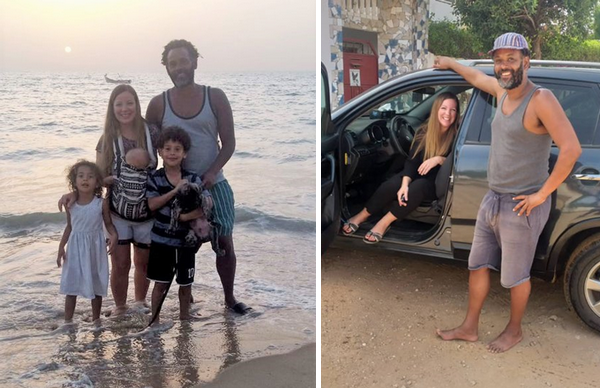
Yasmin and Moustapha Niang's family (left) and them together (right)
Challenges to growing abound in Senegal
As Yasmin explains, the first step to developing the farm was identifying the challenges to food production in Senegal. Being so close to the coast, water quality is a major challenge as the water is very saline and requires filtration for both drinking and growing. However, Gorgorlou recently got approval from the government to dig a 32-meter-deep well to access non-saline water.
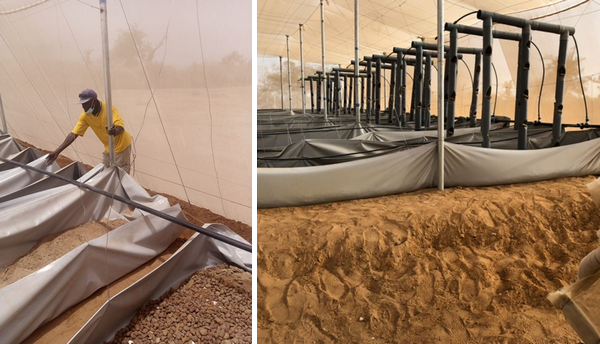
The greenhouse is made ready for production
Aside from the salinity of groundwater, Senegalese agriculture is also challenged by unpredictable weather and insect infestations that can lead to total crop loss. Also, access to sustainable energy sources is limited. Yasmin further noted that finding local markets for their product was challenging, but Gorgorlou is now receiving inquiries on a daily basis to build aquaponic systems at other farms.
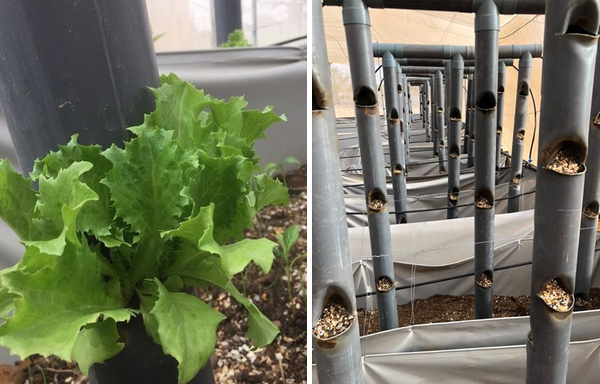
In combination with aquaponics, the farm has been growing various products to date
Another challenge was finding local expertise to help with sourcing local materials and developing the project. After not finding anyone in Senegal who could help with this, the Gorgorlou team spoke with people in Cameroon, Namibia, and Kenya. They were finally able to invite an engineer from Kenya to visit the farm and help them move forward with the project.
Tilapia production already doubled
Although Gorgorlou started with 2.000 tilapia, the farm now has 4.000 fish which are raised in one pool that is 10 meters across and the other that is 8 meters across. Gorgorlou has a second pool planned, and soon they'll be able to grow even more fish there.
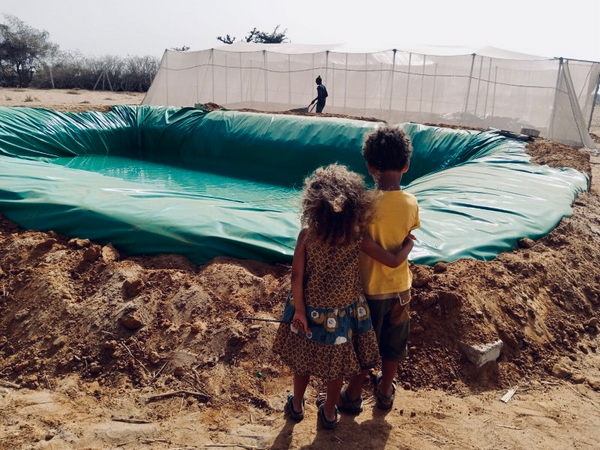
Overlooking the new pond
As Yasmin explains, restaurants want tilapia that weigh 500 grams, and it takes six to eight months to reach this weight. Per month, the tilapia produce roughly 5.000 Euros of income every six months. Supplemental to this income is that generated through the sales of various field-grown vegetables, herbs, hibiscus flowers, orchard fruits, chickens, and eventually greenhouse-grown peppers, cucumbers, and tomatoes.
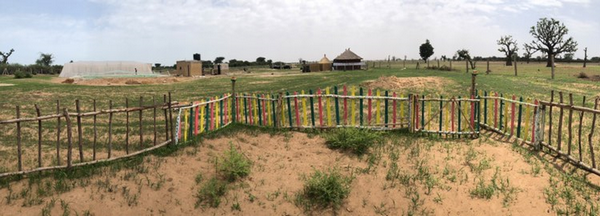
There's plenty of room left for expansion
For all of its activities, Gorgorlou focuses on sustainable, environmentally friendly practices. While the tilapia are currently being fed self-made spirulina algae and sepia shell powder. The fish powder is added at the moment, but as it's not sustainable enough for the couple, the farm is working to transition to more sustainable food sources like insect protein.
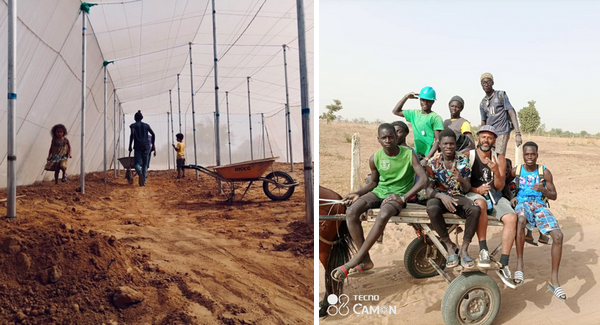
Staff is trained on-site about construction, aquaponics, and generic farming
Plans to expand, add training center
Gorgorlou has plans to expand in many ways, one of which is with the addition of a training center to welcome community members and students interested in organic agriculture. As Yasmin explains, they would love for people to visit the farm, learn about aquaponics, and spread knowledge throughout the country.
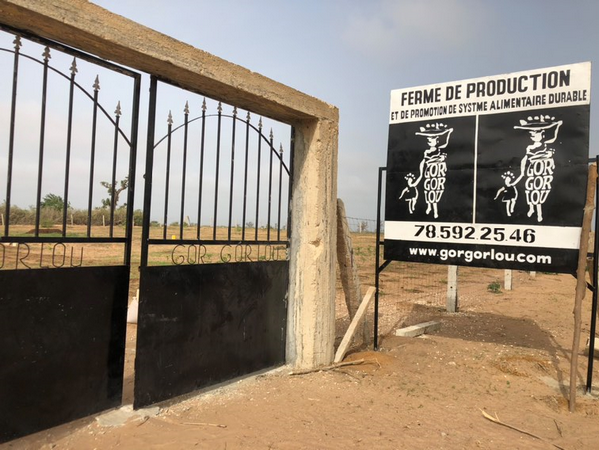
Work in progress
Yasmin also hopes that Gorgorlou will physically expand by adding more ponds, increasing the capacity for renewable energy, and expanding the poultry farm.
"We didn't come here to do this for ourselves. We want to train people on aquaponics, spread farming knowledge across the country, and give people a good reason to stay in Senegal," says Yasmin.
 For more information:
For more information:
Yasmin Niang, Co-founder
yasminwhb@gmail.com
Gorgorlou
https://gorgorlou.com
